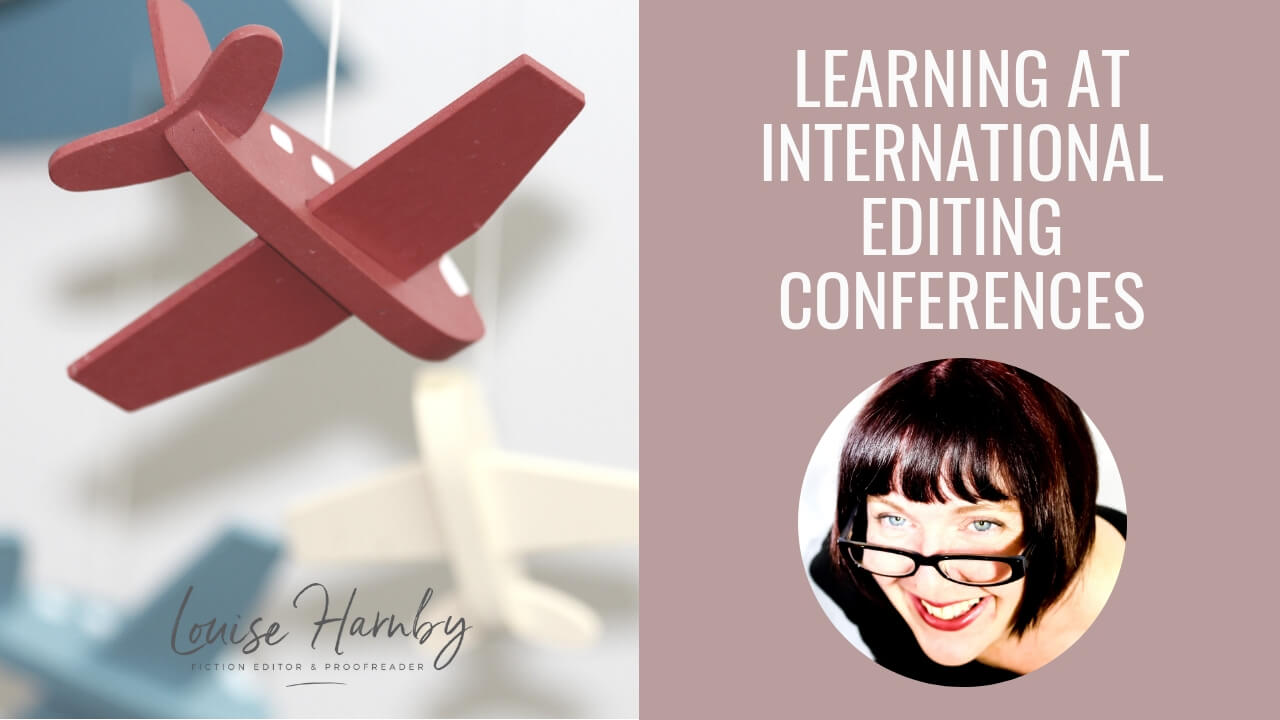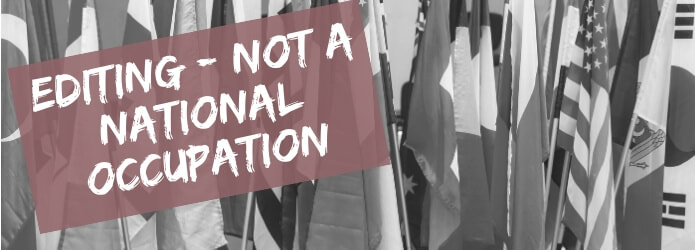Editorial training without borders: Should you bother with international editing conferences?9/10/2019
Does your editorial conference budget include provision for travelling abroad? If it doesn’t, here's why you might want to consider it and what you need to factor in to make it viable.
I’m a Brit who’s been to three editorial conferences in the past 12 months. Two of them required me to pack my passport.
First up was the one day mini-conference hosted by the Society for Editors and Proofreaders Toronto Group. I travelled to Canada in early November. I bought a new winter coat for the occasion because Toronto in November is cold cold cold. The weather foxed me – it was balmy – but the conference was everything I expected. Brilliant. Nine months later, I headed for Chicago, this time for the Editorial Freelancers Association meeting. The sunshine came as promised, not just on the lake shore but in the Swissôtel, too, where the conference took place. I received a lovely welcome and had a ball. Three weeks after that, I was learning again, but this time in the UK. The annual Society for Editors and Proofreaders conference took place at Aston Business School. Rain threatened but never arrived, and the meeting was smashing. Three different conferences. Three different countries. And one thing in common ... The delegates were international. And that’s the thing about the editorial community – we’re from everywhere, and our conferences reflect that. Still, attending conventions, especially those abroad, means an investment in money and time for the professional editor, so why bother?
Being an editor isn't a national occupation
Our clients don’t all live where we live. Take me. I’m a Brit but I’m not an editor of British novels. I’m an editor of novels written in English ... or I should say, Englishes. And as all pro editors know, there is more than one English. And while those Englishes come with variances in spelling, punctuation, grammar conventions and idiom, all of that can be learned and understood. And that's one of the pulls of international conferences. What better way to hone your craft than by spending time in the places where those Englishes are spoken and written, and hanging out with the people who speak and write them?
Other factors to help you decide
Here are some ideas to help you decide whether to cross the border for your editorial training: 1. Look at the conference programme Are there sessions on aspects of editing, or the business of editorial work, that you can’t access elsewhere? For example, take a look at the 2019 Toronto SfEP mini-conference programme (Wednesday, 6 November). You can learn how to identify the missing parts in a fiction narrative, how to use macros, how to master templates, how to edit indexes, and how to tackle fast-turnaround editing. There’s also an optional pre-conference workshop on raising rates. 2. Who's speaking? Are the presenters offering learning opportunities that will be easier to learn face to face? Or perhaps there are keynoters or after-dinner speakers you’d be unlikely to meet otherwise. At the 2019 SfEP conference in Aston, bestselling crime-fiction author Chris Brookmyre , linguist Rob Drummond, and broadcaster/writer David Crystal were all on the schedule. We learned hard ... and laughed harder because all three make what they teach memorable through humour. 3. Can you leverage being an international speaker? Think about whether speaking at editorial events beyond your borders is something you can leverage professionally and that will pay back your investment in the long run. Some of our potential clients value knowing we have international speaking experience because it reflects a global trust in our specialist knowledge. 4. Is an honorarium available? If you’re prepared to speak on a specialist topic, you might qualify for financial support. Of course, this depends on the organizer’s budget and the value they think you’ll bring to the conference, but editorial societies are increasingly recognizing the benefits of international speakers in view of the global nature of our community. Don't assume that assistance isn’t available. Even a contribution to flight, accommodation or meals might be the tipping point for your saying yay rather than nay. 5. Can you buddy up to reduce costs? If a flight’s involved, you’ll have to bite the bullet. If you can drive across the border, however, you can share the cost of travel. And how about sharing a room? I did this with my podcast pal Denise Cowle at the 2018 ATOMICON marketing conference. We halved our costs. And neither of us snored. Promise. We’re talking about doing ACES in a couple of years. Being Airbnb buddies will be one way we’ll make it viable. 6. Find out who else is going Face-to-face networking is powerful. Spending time with international colleagues could lead to referrals that will earn you a return on investment further down the line. And if you have books, courses or other training materials relevant to your editorial colleagues, you could reach new markets when you take the time to put yourself in front of your audience and speak at an international event. We’re much more likely to buy from those we trust, and while online networking is great, and the online editorial community is vibrant and generous, nothing beats getting in front of people, talking with them face to face, when it comes to building relationships and trust. 7. Cost it out and save up Work out what it’s going to cost. It’s all very well my talking about the benefits of international networking and learning, but I’m not going to pretend there isn’t hard cash on the line here! Costing it out is the first step to creating a savings plan. That way you can prepare ... if not for this year’s meetup then for one a year or two down the road. Start with the basics:
Summing up International conferences require more planning and a bigger investment of time and money, but if you’re canny about your preparation, think in the long term, and use them as opportunities to speak, they’re hugely beneficial. Where will you go next? Maybe I'll see you there!
Louise Harnby is a line editor, copyeditor and proofreader who specializes in working with crime, mystery, suspense and thriller writers.
She is an Advanced Professional Member of the Chartered Institute of Editing and Proofreading (CIEP), a member of ACES, a Partner Member of The Alliance of Independent Authors (ALLi), and co-hosts The Editing Podcast.
0 Comments
Leave a Reply. |
BLOG ALERTSIf you'd like me to email you when a new blog post is available, sign up for blog alerts!
TESTIMONIALSDare Rogers'Louise uses her expertise to hone a story until it's razor sharp, while still allowing the author’s voice to remain dominant.'Jeff Carson'I wholeheartedly recommend her services ... Just don’t hire her when I need her.'J B Turner'Sincere thanks for a beautiful and elegant piece of work. First class.'Ayshe Gemedzhy'What makes her stand out and shine is her ability to immerse herself in your story.'Salt Publishing'A million thanks – your mark-up is perfect, as always.'CATEGORIES
All
ARCHIVES
July 2024
|
|
|
|


















 RSS Feed
RSS Feed





